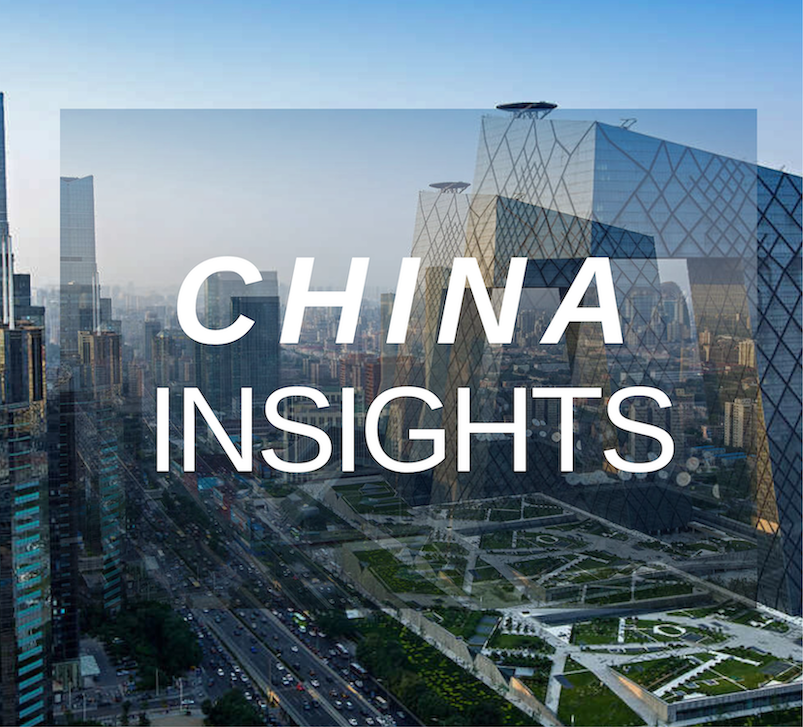Founded in Stockholm, Sweden, in 1970, Kreab is a global strategic communications consultancy with offices in 25 countries, serving over 500 global clients. Kreab advises on communication issues of strategic importance in business, finance, and politics, helping clients solve complex communications challenges and achieve their strategic goals. The Kreab Beijing team is well known for its track record of helping clients manage and strengthen their reputation through services spanning corporate communications, financial communications, public affairs, and social media. Contact Kreab at kchina@kreab.com, follow Kreab on WeChat (ID: KreabChina), or visit Kreab’s website at https://www.kreab.com/beijing.
SwedCham China Insights for week of October 28 – November 1

SwedCham China Insights for October 28 – November 1
Content Provided by Kreab
Top news of the week:
Premier Li Qiang convenes meeting to strengthen economic policies
28 October 2024
On October 25, Premier Li Qiang presided over a State Council executive meeting, during which attendees discussed the current economic situation and the implementation of a raft of incremental policies. The meeting also mulled measures to promote the ice and snow sports industry’s high-quality development, and deliberated and approved a draft revision to the national natural science fund regulation.
China unveils new policy measures to boost birth support
29 October 2024
On October 28, China introduced a series of new birth support policies aimed at building a society more conducive to raising children. A directive from the State Council outlines 13 targeted measures to enhance childbirth support services, expand child care systems, strengthen support in education, housing and employment, and foster a birth-friendly social atmosphere.
China decides to implement unilateral visa-free policy for Finland
30 October 2024
China will further expand people-to-people and cultural exchanges with Finland. It has decided to implement a unilateral visa-free policy for Finland, to welcome more Finnish citizens to come to China for business, tourism and education purposes.
China against latest US’ restrictive investment measures
31 October 2024
China firmly opposes the discriminatory investment restriction measures imposed by the United States particularly focusing on the high-tech sector, and will take countermeasures if necessary, the Ministry of Commerce said on October 30.
China issues guidelines to speed up renewable energy use
1 November 2024
China issued guidelines to promote the replacement of traditional fossil energy sources with renewable energy. The 17-point guidelines, jointly issued by six departments, cover a wide range of aspects including elevating the security and reliability of renewable energy replacement, accelerating the replacement in key fields such as industry and transportation, and actively launching innovative trials and enhancing guarantees.
Insight of the week:
The European Union has decided to increase tariffs on Chinese-built electric vehicles to as much as 45.3% at the end of its highest profile trade investigation that has divided Europe and rose strong opposition from Beijing.
On October 29, the European Commission announced the conclusion of its anti-subsidy investigation, resulting in the imposition of definitive countervailing duties on EVs produced in China. The EU’s new tariffs range from 7.8% for the Chinese output of United States EV maker Tesla Inc, to 18.8% for Zhejiang Geely Holding Group, and up to 35.3% for Shanghai-based carmaker SAIC Motor Corp, in addition to the EU’s existing 10% duty on imported cars. Other Chinese EV manufacturers face an average tariff of 20.7%, with rates reaching up to 35.3% for those classified as “noncooperative”. The tariffs will last for five years, effective from October 31, 2024.
Ten EU members including France, Poland and Italy supported tariffs in a vote in October, in which five members including Germany opposed them and 12 abstained.
China does not acknowledge or accept the European Union’s final ruling to impose additional tariffs on electric vehicles manufactured in the Chinese market, the Ministry of Commerce said on October 30, vowing to take all necessary measures to protect the interests of companies. “We also noticed that the EU side indicated it would continue to negotiate with China on price commitments,” the ministry said, adding that Beijing hoped to find a “solution acceptable to both sides as soon as possible to avoid escalating trade friction.”
Some analysts believe that based on the principle of reciprocity, the EU’s decision will inevitably trigger countermeasures, potentially having an impact on competitive EU export industries that trade with China.
About Kreab
Founded in Stockholm, Sweden, in 1970, Kreab is a global strategic communications consultancy with offices in 25 countries, serving over 500 global clients. Kreab advises on communication issues of strategic importance in business, finance, and politics, helping clients solve complex communications challenges and achieve their strategic goals. The Kreab Beijing team is well known for its track record of helping clients manage and strengthen their reputation through services spanning corporate communications, financial communications, public affairs, and social media. Contact Kreab at kchina@kreab.com, follow Kreab on WeChat (ID: KreabChina), or visit Kreab's website at https://www.kreab.com/beijing.
